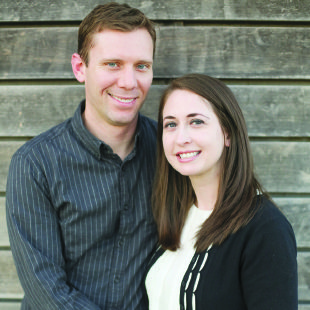Whether it's a basic question of every day care or easing a fear of a common dental procedure, Drs. Robert and Mandy Shearer of Soddy Daisy Smiles offer answers.
I have a terrible fear of going to the dentist, yet I know I need to. What should I do?
If you fear going to the dentist, you are not alone. Between 9 and 15 percent of Americans state they avoid going to the dentist because of anxiety or fear. The first thing to do is talk with a dentist. The key to coping with dental anxiety is to discuss fears with your dentist. Once your dentist knows what your fears are, he or she will be better able to work with you to determine the best ways to make you less anxious and more comfortable.
Why do I need my teeth cleaned?
Once plaque sits on your teeth for more than 24 hours it hardens into tartar. Plaque and tartar contain huge quantities of bacteria which release toxins causing deterioration of the bone and soft tissues holding the teeth resulting in eventual tooth loss. Tartar must be scraped off professionally with scalers and cannot be removed with a toothbrush or floss.
How often should I see my dentist?
On average, seeing a dentist twice a year works well for most people. A few people can get away with fewer visits. Others may need more frequent visits. If you have good oral hygiene habits and a healthy mouth, your dentist and dental hygienist will probably suggest professional teeth cleaning at least twice a year. People with a high risk of dental disease might need to visit every three or four months, or more depending on the diagnosis. This high-risk group includes:
- Smokers
- Diabetics
- People with current gum disease
- People with a weak immune response to bacterial infection
- People who tend to get cavities or build up plaque
My dentist says I have a cavity and that I need a filling, but why doesn't my tooth hurt?
"Most dental problems don't have any symptoms until they reach more advanced stages, so don't wait for things to hurt," said Dr. Mandy Shearer. "It is best to get a thorough dental exam, and diagnose and treat problems early. Waiting often makes problems more difficult and more expensive to fix."
Why do I need a crown; can't you just fill it?
"Crowns are necessary when a tooth is generally broken down and fillings won't solve the problem," Dr. Robert Shearer said. "If a tooth is cracked, a crown holds the tooth together to seal the cracks so the damage doesn't get worse."
Crown fabrication traditionally takes place in a dental laboratory, but with a new machine recently purchased by Soddy Daisy Smiles, there's now a much more convenient alternative: same-day crowns made in the dental office.
When a tooth has a cavity, crack or fracture that involves half the width of the tooth or more, it needs to be covered with a crown. This is because the remaining tooth around the large filling is so weak that it is prone to fracture
"A crown can sometimes take two or three appointments, but at our office, we can make most crowns same day, which is easier and more convenient for our patients," Dr. Robert added. "Our office has an in-office machine called Cerec, which allows us to create natural-looking ceramic crowns, often in a single visit. We use a digital camera to take an optical impression of the damaged tooth, design the appropriate restoration using CAD software and mill tooth-colored restorations, which can eliminate the need for a temporary and return visit."
Are there any alternatives to dentures?
There are many treatment alternatives for dentures. The most frequent complaint from a denture wearer is the retention and stability of the lower denture. Treatments can range from as little as two implants to support the lower denture to a full mouth of implants to replace each individual tooth. Dental implants are becoming the alternative of choice to dentures.
"Dental implants are one of the most life-changing procedures we offer at our practice," said Dr. Robert Shearer. "Implant technology is allowing our patients to look and feel like they have natural teeth again, and get that part of their life back that was consumed by their partials or dentures."
Why should I floss?
Flossing is essential for healthy, strong teeth. Brushing with a fluoride toothpaste removes bacteria that causes dental decay from the front and back of your teeth. However, toothbrush bristles can't reach the surfaces in between teeth or under the gum line. When you don't floss, you're not cleaning 40 percent of the tooth. Using dental floss daily can clear away bacteria in these hard-to-reach areas before they cause decay and gum disease. Flossing not only removes food trapped between your teeth that your toothbrush can't dislodge but also removes the film of bacteria that forms between teeth before it can harden into plaque.
Are electric toothbrushes better than manual brushes?
Both manual and power toothbrushes are effective, but studies have shown electric and sonic toothbrushes, if used properly, can perform better than manual toothbrushes. The key is to use the toothbrush that best meets your needs. For example, people with arthritis or limited dexterity may find an electric toothbrush especially helpful. People with orthodontic braces may find it easier to brush effectively with an electric toothbrush; and since the rotating head of a powered toothbrush requires less force and manipulation than a manual toothbrush, the risk of dislodging orthodontic appliances might be reduced.
Drs. Mandy and Robert Shearer meet with clients to address their dental work, and recommend a variety of dentistry options that will be the best fit for each client. For more information about Soddy-Daisy Smiles and their services, visit soddydaisysmiles.com or call the office at 423-332-5275 to schedule an appointment.
Noteworthy:
"Advanced dental technology known as Computer-Aided Design/Computer-Aided Manufacturing, or CAD/CAM, makes it possible to fabricate laboratory-grade crowns and other dental restorations in minutes," Dr. Mandy Shearer
MORE INFORMATION
For more information about Soddy-Daisy Smiles and their services, visit soddydaisysmiles.com or call the office at 423-332-5275 to schedule an appointment.

